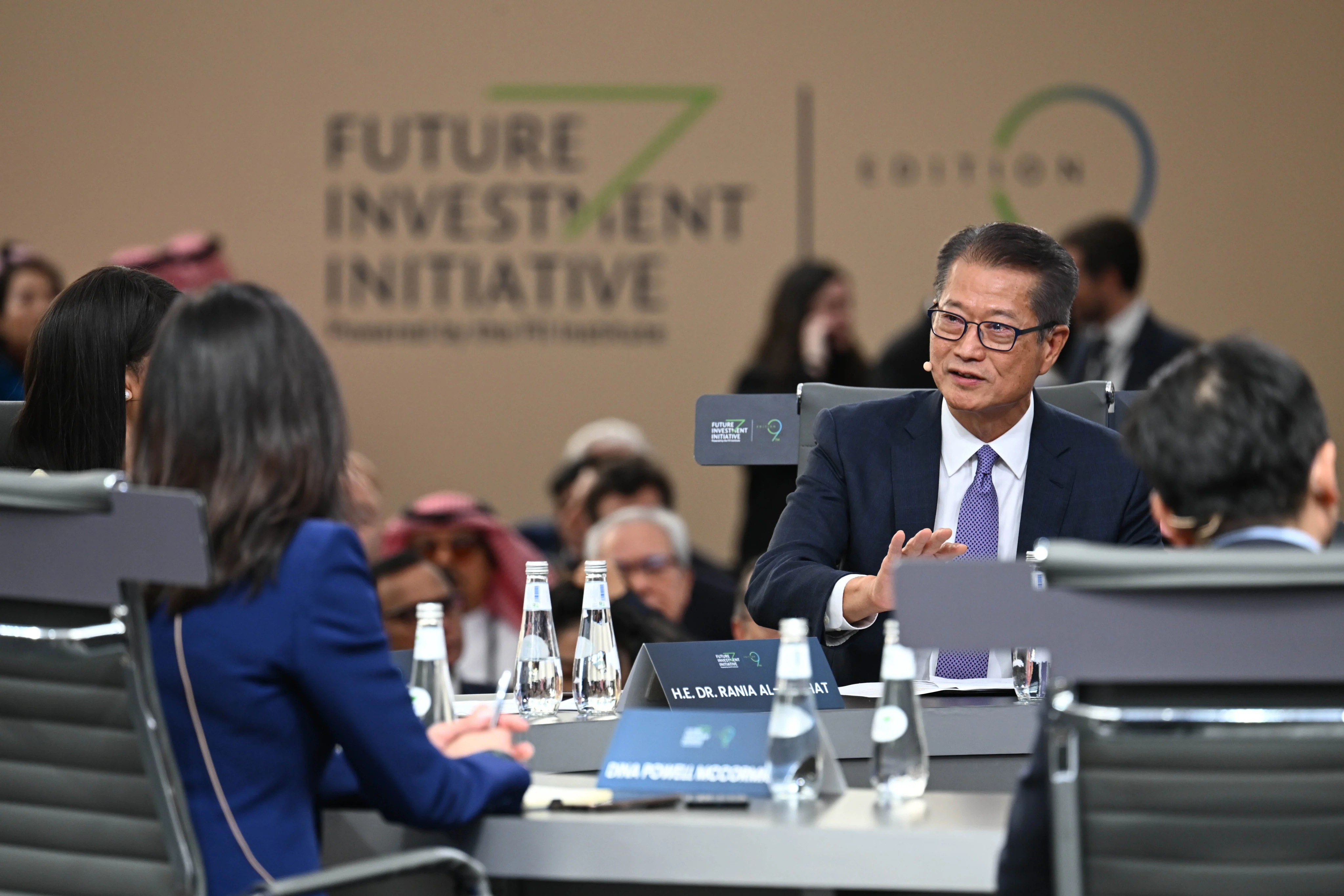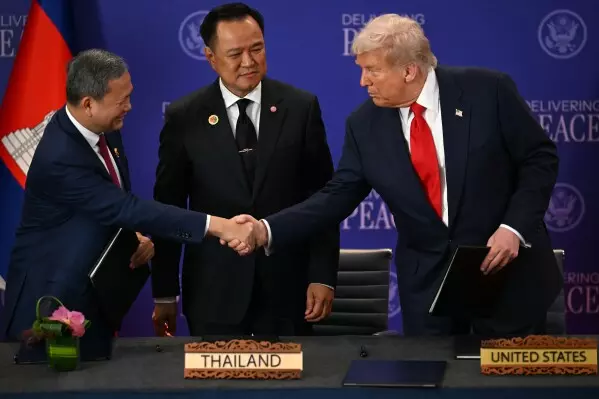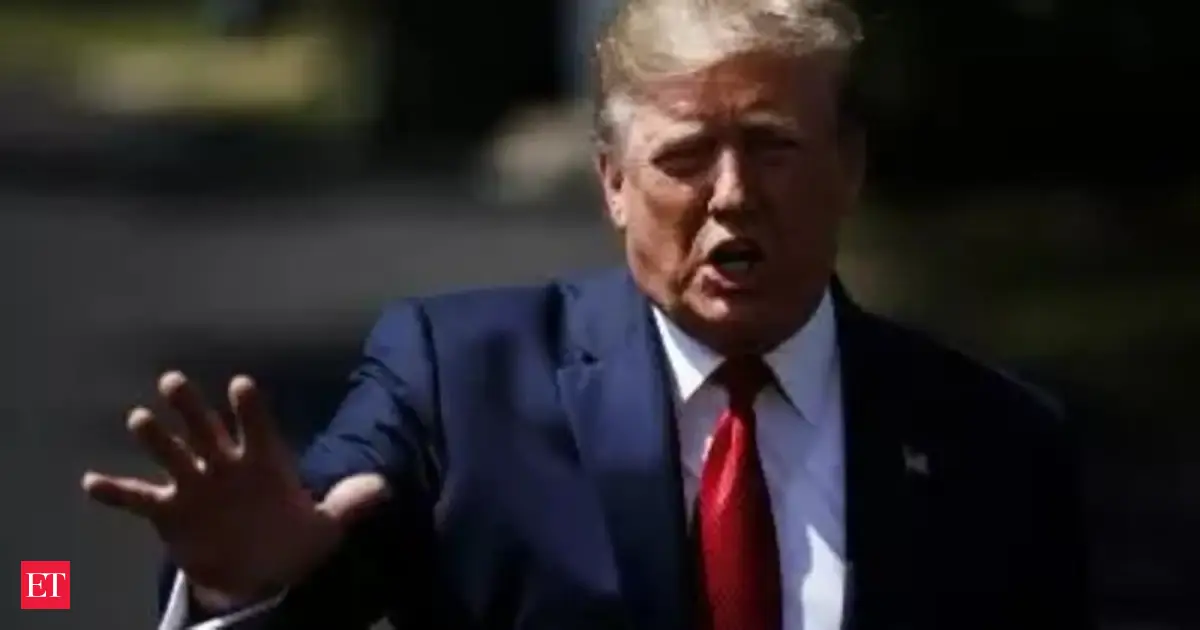Copyright scmp

Hong Kong will remain competitive through public-private partnerships and the pursuit of pragmatic solutions amid China-US tensions, Financial Secretary Paul Chan Mo-po has said at a global summit. The finance chief’s remarks were made on his first day at the 9th Future Investment Initiative (FII) forum in the Saudi capital, Riyadh, against the backdrop of US-China talks to avert escalating a trade war. US-China engagement has deepened after Beijing’s October 9 announcement of further export restrictions on rare earth elements, a move widely seen as retaliation for the US expansion of its trade blacklist. “I think the talks have been going on from the Chinese side, obviously, taking a very pragmatic attitude to find solutions, to find common ground, despite certain competition in certain areas,” Chan said during a panel discussion. He highlighted different areas in which China and the US could still collaborate, such as in climate change and developing AI to benefit mankind. “I think there are a lot of common grounds that we can work together,” he said. Speaking on public-private alignments, Chan cited infrastructure work as an example, including the Cross-Harbour Tunnel, which used the Build-Operate-Transfer model. Under this arrangement, he said the company would build the tunnel, operate it for a specified number of years, earning a reasonable or even decent return, before handing it back to the government. He added that railway development, another example of infrastructure work, was different as its operations required heavy upfront capital investment and typically offered low returns as a public transport service. The government thus adopted the “railway-plus-property” model, granting private developers property rights at various stations, and allowing them to use profits from those developments to subsidise rail operations, he said. Meanwhile, he said that the Northern Metropolis project, which covers one-third of the city, would adopt multiple approaches to attract strategic enterprises, including flexible land grants and having a government-owned company function as patient capital. The Northern Metropolis project, near the border with mainland China, was first announced in 2021 and aims to turn 30,000 hectares (74,132 acres) of land into an engine for economic growth and a housing hub. Announced in last month’s policy address, the government would establish dedicated companies to manage various industrial parks within the megaproject, devising public-private partnership approaches such as the Build-Operate-Transfer model. In terms of leveraging the market, he also said that the government-owned Hong Kong Investment Corporation Limited (HKIC), which manages HK$62 billion (US$8 billion) in investments, would work with fund management companies to establish various funds for innovation, technology and development. This strategy allowed the government to leverage private capital into sectors the authorities wished to develop, he said. As of March this year, HKIC has invested in about 100 projects at different stages of development, including enterprises in key industries such as “hard & core technology”, biotechnology, and “new energy & green technology”. The Saudi trip is part of the government’s push to deepen business and people-to-people ties with the Gulf state, building on momentum established at last year’s conference. Apart from Chan, other speakers from the city include Hong Kong Exchanges and Clearing CEO Bonnie Chan Yi-ting and former chairwoman Laura Cha Shih May-lung. Bonnie Chan will be speaking on competing visions for the world’s financial centres and Laura Cha will share about the clash and convergence of public and private markets. This year, Chan led a 40-member Hong Kong delegation to the FII summit, including representatives from financial institutions, founders, and executives of enterprises engaged in AI and biomedical technology. The visit was built on the success of last year’s signing of at least two major deals in Riyadh. The bilateral exchanges between Hong Kong and Saudi Arabia began with a visit by Chief Executive John Lee Ka-chiu to Riyadh in February 2023.



